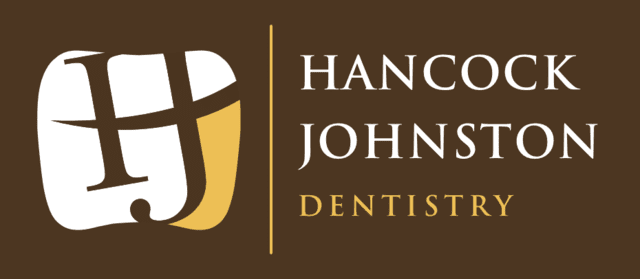Going to the dentist is an essential part of maintaining good oral hygiene. However, when you’re pregnant, you may wonder if it’s safe to go to the dentist. In fact, research shows that 43 percent of pregnant people skip out on dental care during pregnancy. And up to half of pregnant women with dental pain avoid the dentist because they believe that treatment could harm the baby.
The good news is that not only is dental care during pregnancy safe, it’s also essential. Hormonal changes during pregnancy can increase the risk of developing gum disease, which in turn can lead to premature birth and low birth weight. Additionally, poor oral health has been linked to gestational diabetes and preeclampsia. Therefore, it’s crucial to keep appointments with dentists such as Hancock and Johnston Dentistry for routine cleanings and checkups during pregnancy.
Oral health conditions during pregnancy
During pregnancy, it’s no secret that change is a daily occurrence. Your body is going through a lot! As a result, you may find that your oral health suffers somewhat.
For instance, your eating habits may change due to cravings. Perhaps you are consuming more carbohydrates, leaving you at higher risk of developing cavities. Your gums may become tender, making you less included to brush and floss as you did when you weren’t pregnant. And brushing and flossing may trigger morning sickness, as well.
Here are some of the dental issues that you could experience due to pregnancy hormones.
Gingivitis and Periodontitis
Gingivitis is an issue that may occur from hormonal changes that exaggerate the response to bacteria in the gum tissue. In fact, this condition affects up to 75 percent of pregnant women, who suffer from red, swollen gums.
If left untreated, this gingivitis can turn into periodontitis, a serious gum infection that has been linked to preterm birth, low birthweight babies and pre-eclampsia. There’s also the potential that bacteria could pass to your newborn, which can set them up for oral health issues like cavities early in life, too.
- Redness and swelling
- Tenderness
- Bleeding, even when brushing gently
- Shiny gums
- Loose teeth
Cavities and Enamel Erosion
You can blame pregnancy for higher cavity risk, too. The sweet food cravings you have could cause you to eat more carbohydrates, which feeds the bacteria that causes tooth decay.
Morning sickness can affect the acidity level in your mouth, causing damage to the protective enamel on your teeth. The simple act of brushing your teeth may trigger a nausea response if you suffer from morning sickness, keeping you from practicing good oral hygiene and leaving you susceptible to developing cavities.
Pregnancy Tumors
Pregnancy tumors, or gum tumors, are overgrowths of tissue that can develop on the gums, usually during the second trimester. These growths are not cancer, just lumps that form (usually between teeth).
They bleed easily and have a raw appearance, and up to 10 percent of pregnant women experience them. They usually go away after giving birth, but if the growths interfere with eating, your dentist may want to remove it.
Safe dental procedures during pregnancy
Most routine dental procedures, such as cleanings and fillings, are safe during pregnancy. Your dentist may postpone certain procedures until after your pregnancy depending on input from your OBGYN.
Dental work should ideally be performed during the second trimester. This is because the first trimester is the most vulnerable time of development and lying on your back during the third trimester may be difficult.
Dental X-rays
Dental X-rays are safe during pregnancy. They use very small amounts of radiation, and there is hardly any exposure to any part of your body except the teeth. The mother and the baby’s health are a priority and we take the highest precautions. Lead aprons fully cover the baby and the mother.
According to the American College of Radiology and the American Dental Association, diagnostic X-ray with the appropriate covering do not have high enough radiation to cause adverse effects in a developing embryo or fetus. Even with this knowledge, we always err on the side of caution. Only x-rays necessary to diagnose pain or discomfort are taken.
Medications and anesthesia during pregnancy
If you need dental work that requires anesthesia or medication, your dentist will carefully consider the type and dosage. Some medications are safe during pregnancy, while others are not. Don’t take any medicine without talking to your obstetrician first.
Contact your dentist right away if you experience any of these symptoms during pregnancy:
- Loose teeth
- Mouth sores or lumps on the gums
- Receding gums or pus along your gum line
- Gums that are red, swollen, tender or shiny; gums that bleed easily
- Toothache or other pain
Good oral health during pregnancy
Here are some things you can do to encourage good oral health during pregnancy:
- Get regular dental checkups and tell your dentist if your pregnancy is high-risk and/or if you’re taking any medications
- Brush your teeth twice a day.
- Scrub your tongue
- Floss daily
- Rinse with mouthwash (a study found that this act reduces may reduce chances of preterm birth from 1 in 5 to 1 in 20)
- Eat a healthy diet rich in calcium and vitamin D
You can rest assured that you are reducing your pregnancy complications, especially at Hancock and Johnston Dentistry. We have a reputation for taking a personal interest in our patients and taking the time to come up with custom dental care plans — especially when you’re expecting. Contact us to meet our friendly team today

